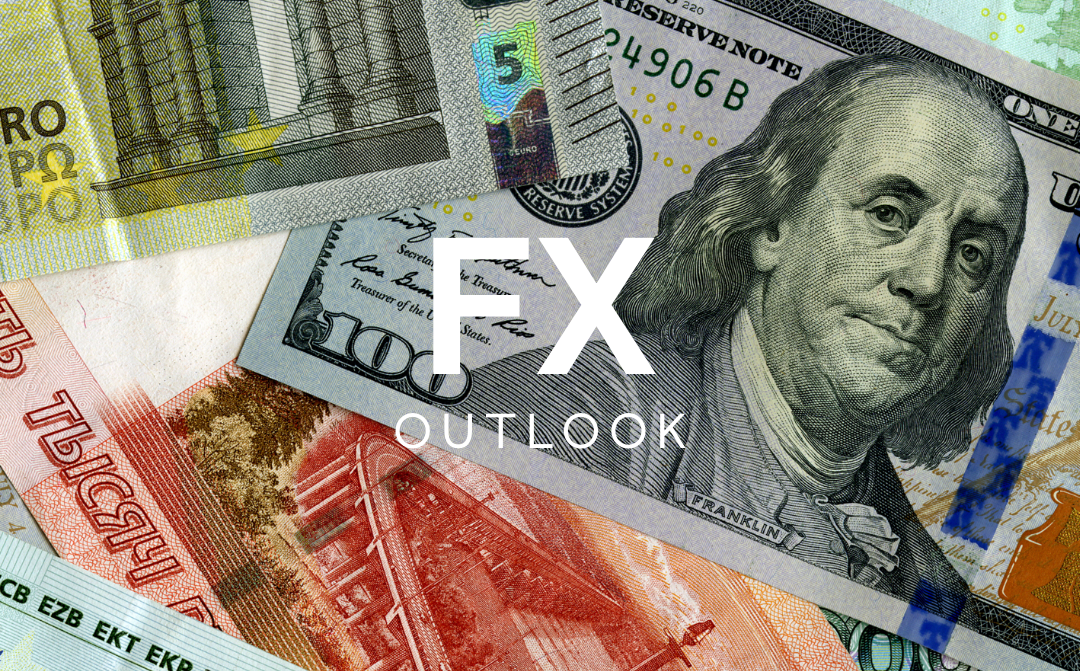FX outlook – USD, EUR, GBP, CAD, AUD, NZD

Table of Content
USD
It’s been all good for the US dollar as it closed higher for the 6th week, reigning superior dominance over other currencies and reminding us of its haven status in times of economic downturn. The dollar index which tracks the strength of the US dollar against a basket of currencies rose about +0.73% this week, reaching the peak of May 2023.
Digesting the economic event that played out this week, the US dollar’s strength relied on the optimism around the economy as data reports portrayed a different picture. The US existing home sales dropped in July to 4.07 million as the housing market continues to respond to the Fed’s aggressive monetary policy campaign. Later, we saw PMI reporting across significant economies, and the US economy was not left out of the economic contraction felt globally. US business activity stalled in August as the Manufacturing PMI (47.0 vs 48.9), and Services PMI (51.0 vs 52.1) came out worse than expected, dropping from the previous month. There was an improvement in the labor sector after the unemployment claims report showed another decline in claims benefits. To crown things up, the Fed Chair, Jerome Powell maintained the same hawkish rhetoric at the Jackson Hole symposium that the central bank may need to keep raising rates to keep inflation under control.
Moving on to a new week, the dollar will be looking to stretch its gains as we approach the end of the month and will see its first major test at the important NFP report on Friday. A weak jobs report could further the rhetoric around a weakening economy that gained traction through last week’s PMI surveys. Should that come to fruition, there would be potential calls for the Federal Reserve to hold off on any further tightening. Keep a keen eye on Chinese developments, with further signs of an intensification of the current crisis likely to bring further dollar upside.
CAD
The Canadian dollar largely stood firm this week but weakened further against the US dollar as recession worries increased demand for the haven greenback. The CAD dropped about 0.5% against the USD taking its losing streak to six weeks. Weak PMI data throughout Europe and the US did raise questions over whether we could see something similar in Canada. Meanwhile, higher-than-expected inflation data brought a similar experience to that seen over the border, with base effects bringing the headline CPI figure back up to 3.3% from 2.8% in June.
The rise in Canadian inflation did little to strengthen the CAD, with traders primarily focused on relative rates and declining energy prices. A close correlation between CAD and WTI should ensure further reliance on energy prices to drive sentiment, with Chinese PMI data released this coming week providing a key update on economic activity and thus demand for Crude products.
With little help from the economic calendar, sentiment has been largely driven by risk attitudes influenced by factors such as corporate earnings and Chinese slowdown fears. However, this week does have the monthly GDP report scheduled for Friday, with a move into negative growth potentially serving to dampen CAD sentiment should it come to fruition.
EUR
The Euro didn’t get any better this week as it remained vulnerable due to a gloomy economic outlook. The ECB is currently faced with a herculean task as the Eurozone economy faces inflation, slow economic growth, and an unending war between Russia/Ukraine.
The latest PMI readings around the bloc showed business activity dropped to its lowest in three-years coupled with a significant drop in consumer confidence. The largest economy in Europe (Germany) also contributed to further weakness in the Euro after reports showed its GDP stalled in the second quarter (0%), while business sentiment weakened for the fourth consecutive month.
The current situation puts the ECB in a tight corner as analysts are expecting the central bank to hold rates at next month’s policy meeting as the chances of a soft landing get slimmer. However, the ECB President, Christine Lagarde maintained the same rhetoric as her counterpart (Jerome Powell), citing the need to leave rates at restrictive levels for longer as the central bank aims to bring inflation down to its 2% target. This week, the euro could face more headwinds as investors continue to flee to the US dollar. The single currency will look towards the latest inflation and consumer activity reports as key drivers of volatility.
GBP
The pound has seen plenty of volatility over recent days, with the currency experiencing one of its worst weeks of 2023. While the currency has enjoyed the role as outperformer over much of this year, questions have been raised over the trajectory of interest rates despite elevated inflation rates.
The release of contraction readings across both manufacturing and services PMI surveys brought heightened fears around the direction of the economy last week. In particular, the move below 50 for services raised fears given the reliance on the sector for growth. With public sector output contracting at the fastest rate since January 2021, the pound suffered sharp losses as markets considered the potential implications for policy at the Bank of England (BoE). Could the rise in interest rates finally be making a tangible impact on UK growth and economic activity?
The prospect of an economic slump in the UK brings a particular sensitivity to any data going forward, as any further signs of distress likely to impact pricing around the September BoE meeting. Monday’s bank holiday, coupled with a quiet calendar for the remainder of the week does signal a potential drop-off in volatility. Watch out for Friday’s Nationwide House Price Index release, with any significant signs of further weakness bringing potential downside for the pound.
AUD
A changeable week for the Australian dollar saw early gains eroded on Thursday and Friday. In part that was a reflection of the reversal seen against the euro and pound following their weak PMI figures. We did similarly see Australian PMI figures lose traction, although it was marginal in nature and saw little volatility for the Aussie dollar. Nonetheless, weakness for AUD looks likely to remain a significant risk given the ongoing concerns around China. A potential credit and real estate crisis in China has many concerned over the implications for growth, with Australian exports already appearing to take a hit.
Last week saw the People’s Bank of China cut interest rates, although markets proved largely unimpressed by the amount and breadth of action. Whether we do see further action from the Chinese in a bid to prop up their economy will be crucial for AUD. Meanwhile, keep a close eye out for Chinese PMI data released on Thursday, with this leading indicator of economic health bringing implications for the Australian currency.
In terms of Australian data, Wednesday’s monthly consumer price index reading provides the main event of note. The previous reading of 5.4% comes off the back of a multi-month period of declining inflation, with AUD likely to remain volatile around any significant moves in the figure. On the central bank front, the first appearance from the inbound RBA Governor Michele Bullock will no doubt attract attention on Tuesday as we attempt to gauge whether she plans to take a different path from her predecessor.
NZD
The NZD similarly managed to gain ground in the early part of last week, with the concerns around European growth helping to shift the scales in terms of the relative interest rate outlook. However, the New Zealand reliance on Chinese demand for their agricultural products brings a notable link between economic health in China and the NZD. That points towards further weakness for the currency in the face of ongoing concerns for the Asian powerhouse. Comments from the RBNZ Chief Economist further reiterated that bearish NZD tone, signalling that the bank would opt to lower their headline interest rate sooner in the event of a more significant slowdown in China.
Last week saw New Zealand trade data for July highlight the difficult relationship with China, as demand for dairy products fell sharply. A collapse in both imports (mainly energy) and exports (agricultural) resulted in a significant widening of the trade deficit. The fear is that until China resolves its current issues, the country will see further declines for exports, driving NZD weakness. Meanwhile, a disappointing retail sales figure of -1% (-1.8% core) signalled a weak domestic demand picture to accompany that dire export situation.
Looking ahead, a relatively quiet week sees building consent and business confidence data dominate. Aside from that, keep a close eye out for Chinese PMI surveys, with both services and manufacturing readings at risk of another downside move to put pressure on the New Zealand dollar.
Disclaimer: This material is a marketing communication and shall not in any case be construed as an investment advice, investment recommendation or presentation of an investment strategy. The marketing communication is prepared without taking into consideration the individual investors personal circumstances, investment experience or current financial situation. Any information contained therein in regardsto past performance or future forecasts does not constitute a reliable indicator of future performance, as circumstances may change over time. Scope Markets shall not accept any responsibility for any losses of investors due to the use and the content of the abovementioned information. Please note that forex trading and trading in other leveraged products involves a significant level of risk and is not suitable for all investors.







